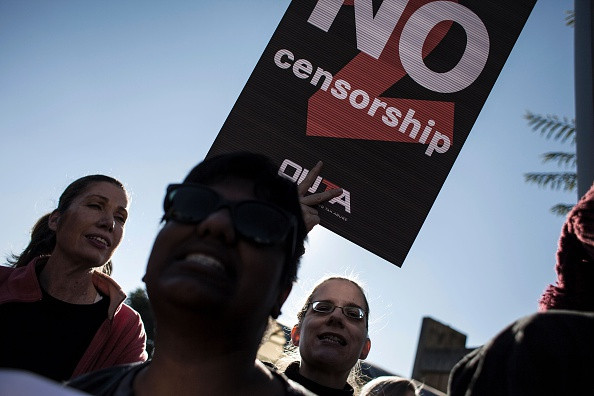Fears spread that SABC is turning into state broadcaster as eight journalists fired
Journalists fired after criticising SABC decision not to broadcast image of Limpopo protests

South Africa Broadcasting Corporation (SABC) has sacked eight journalists after they criticised the organisation's decision to not broadcast footage of violent protests that occurred in June.
The riots began as citizens protesting against plans to include their neighbourhoods in a new municipality torched more than 20 schools in the Limpopo province.
The SABC refused to broadcast the footage - reportedly showing "destruction of property" - amid fears it could incite further violence.
"As the SABC, we are very clear that we are going to cover protests that are happening and we are going to make sure that we are going to do that without fear or favour," the organisation said in a statement.
'SABC 8' journalists
Thandeka Gqubule
Foeta Krige
Lukhanyo Calata
Suna Venter
Busisiwe Ntuli
Krivani Pillay
Vuyo Mvoko
Jacques Steenkamp
"When we are covering those protests where there are people destroying the property, we are not going to show that footage on our television. If there is sound that will encourage that behaviour then we will not use that sound on our radio stations."
However, when some of the journalists and freelancers working for SABC criticised this decision, the organisation fired them.
One of the letters of dismissal handed to one of the employees read: "It has now become clear to the SABC that you have no intention to refrain from your conduct of undermining the SABC and the authority of its management."
The journalists became known as the "SABC 8" after they spoke out against what they perceived as censorship.
And a 6th journalist fired. Here's Lukhanyo Calata's letter of dismissal. Dismissed for "disrespect[ing] the SABC". pic.twitter.com/6s1aJopV7d
— Eusebius McKaiser (@Eusebius) July 19, 2016
The SABC's decision has been met with anger, amid allegations the corporation is undermining freedom of speech and turning into a state broadcaster ahead of key municipal election in August.
More than $3,000 (£2,285; €2,720) has been raised as part of a fundraising initiative to support the journalists who "lost their jobs for standing up for media freedom and telling the truth."
It is believed some of the journalists will approach the Labour Court to challenge their dismissal.
© Copyright IBTimes 2025. All rights reserved.






















